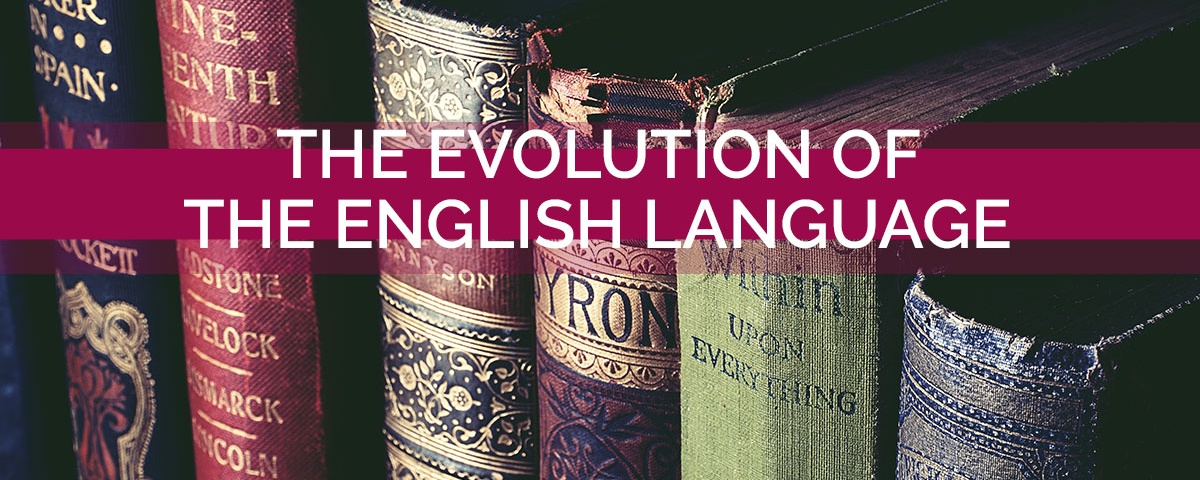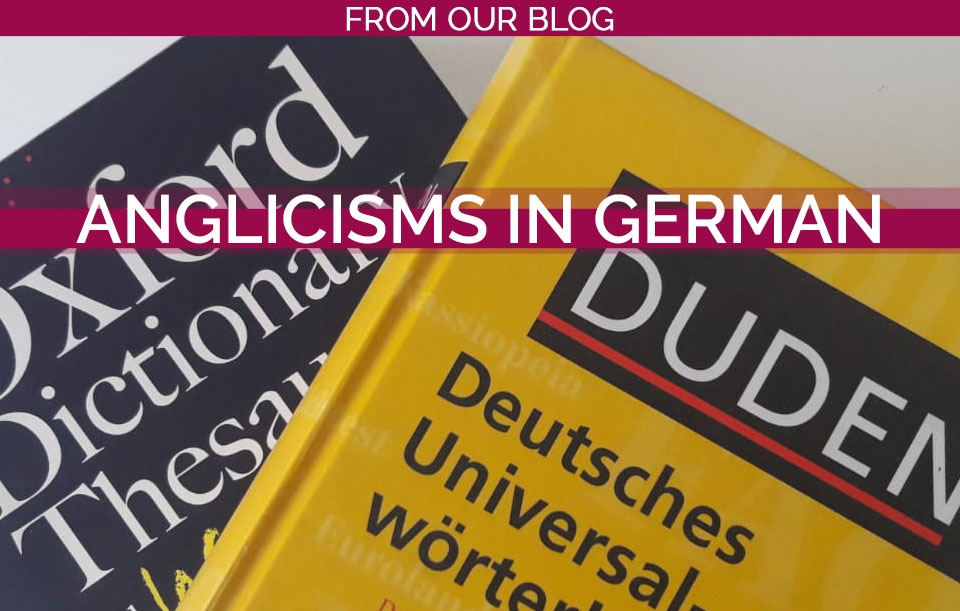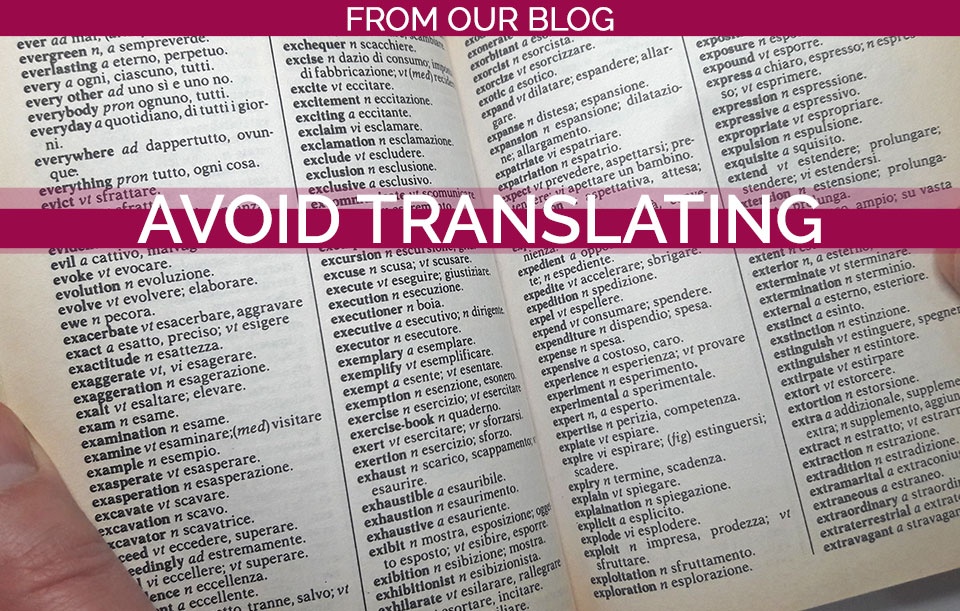
Languages on holiday
04/07/2018
Building simple sentences
22/03/2019T
oday I would like to talk about the evolution of the English language, spoken throughout the world by millions of people as a result of significant events that took place more than 1500 years ago, and still continue to shape it today
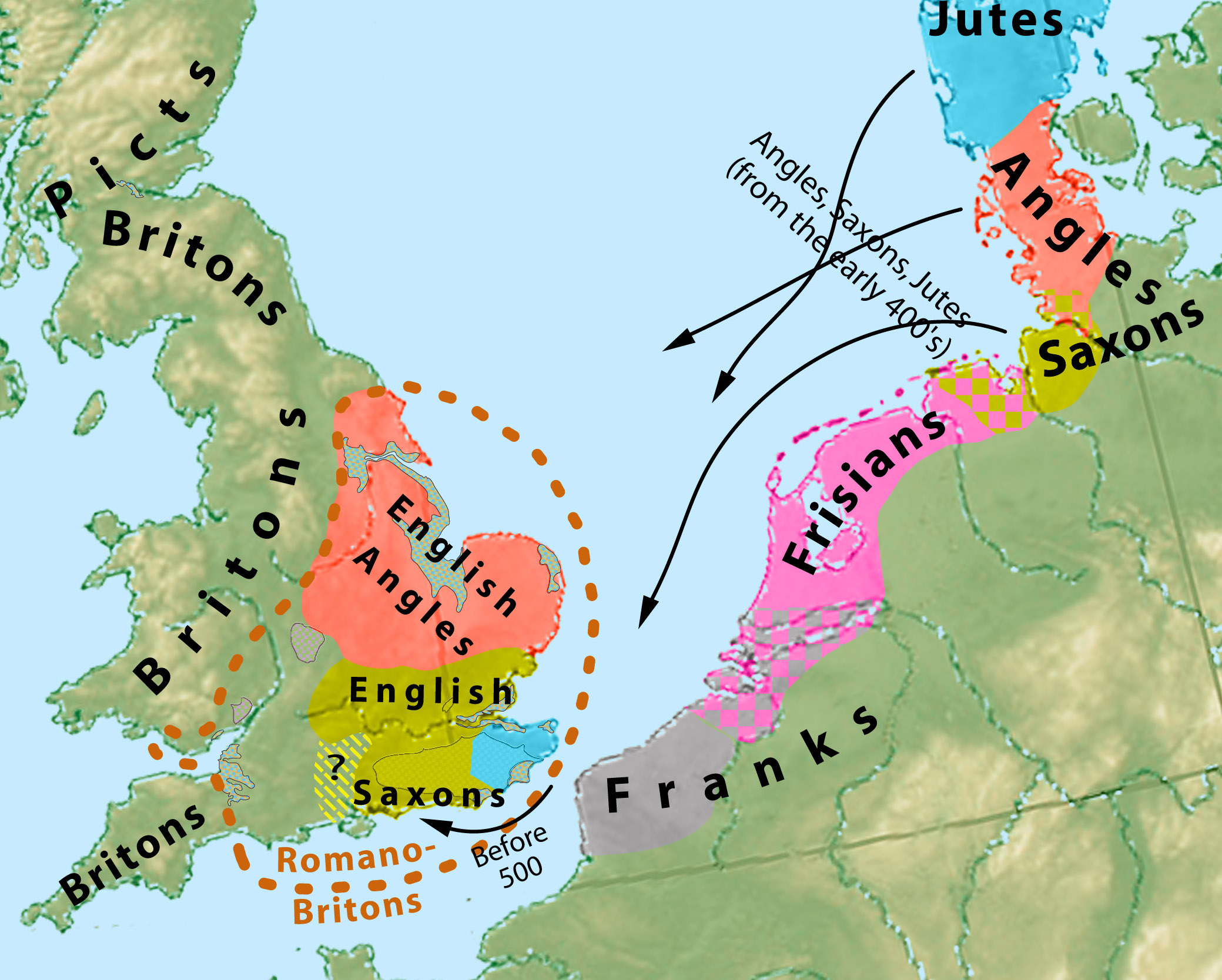
Anglo-Saxon homelands and settlements in Britain in 400-500 A.D.
450-1100 A.D.
Y ou have to go back several centuries, up to the 5ᵗʰ century A.D., to discover that the British islands were invaded by Germanic tribes called Angles, Jutes and Saxons, who spoke Germanic dialects which gradually replaced the Celtic languages spoken at that time, thus creating the language called Anglo-Saxon or Old English.
This language forms the basis of the English language we know today (words like strong, water were introduced in this period), but it was nevertheless a language with striking similarities to German. For those who love English literature we can remember that the epic poem ‘Beowulf’, written in Old English, dates back to this period.
In the 8ᵗʰ and the 9ᵗʰ century A.D. the British Isles were invaded by Vikings from Denmark, Norway and Sweden who introduced many loanwords and simplified the language. Words like give, take, husband, after date back to this period.
Risalgono a quest’epoca parole come give, take, husband, after.
Y ou have to go back several centuries, up to the 5ᵗʰ century A.D., to discover that the British islands were invaded by Germanic tribes called Angles, Jutes and Saxons, who spoke Germanic dialects which gradually replaced the Celtic languages spoken at that time, thus creating the language called Anglo-Saxon or Old English.
This language forms the basis of the English language we know today (words like strong, water were introduced in this period), but it was nevertheless a language with striking similarities to German. For those who love English literature we can remember that the epic poem ‘Beowulf’, written in Old English, dates back to this period.
In the 8ᵗʰ and the 9ᵗʰ century A.D. the British Isles were invaded by Vikings from Denmark, Norway and Sweden who introduced many loanwords and simplified the language. Words like give, take, husband, after date back to this period.
Risalgono a quest’epoca parole come give, take, husband, after.
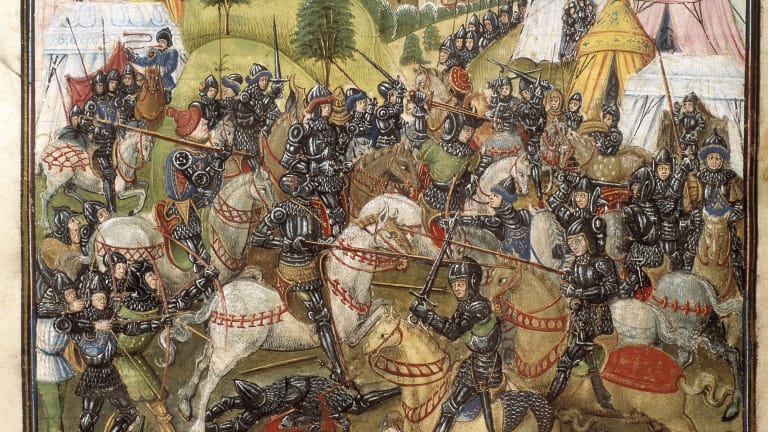
Miniature depicting the Battle of Hastings (1066)
1100-1500 A.D.
L inguistically speaking, a momentous date was 1066 with the Norman conquest of England by William the Conqueror, Duke of Normandy, who contributed to the evolution of Old English into Middle English, strongly influenced by the French language of the time. Words like beer, city, fruit, jury became part of the English spoken at that time.
French became the language of power and sovereigns, while English remained the language of the people. Geoffrey Chaucer's ‘Tales of Canterbury’ dates back to this period.
It was during this period that the spelling system was established. Subsequently, changes in phonetics and pronunciation, as well as the introduction of foreign spellings, resulted in the numerous spelling variants of the modern English language. There is no doubt that English spelling is difficult because the phonetic and spelling system of the language do not always correspond.
In the 15ᵗʰ century, , with the attempt to impose Christianity as a new religion in Britain, Middle English was also influenced by Latin, which was the language of the Church at the time.
L inguistically speaking, a momentous date was 1066 with the Norman conquest of England by William the Conqueror, Duke of Normandy, who contributed to the evolution of Old English into Middle English, strongly influenced by the French language of the time. Words like beer, city, fruit, jury became part of the English spoken at that time.
French became the language of power and sovereigns, while English remained the language of the people. Geoffrey Chaucer's ‘Tales of Canterbury’ dates back to this period.
It was during this period that the spelling system was established. Subsequently, changes in phonetics and pronunciation, as well as the introduction of foreign spellings, resulted in the numerous spelling variants of the modern English language. There is no doubt that English spelling is difficult because the phonetic and spelling system of the language do not always correspond.
In the 15ᵗʰ century, , with the attempt to impose Christianity as a new religion in Britain, Middle English was also influenced by Latin, which was the language of the Church at the time.
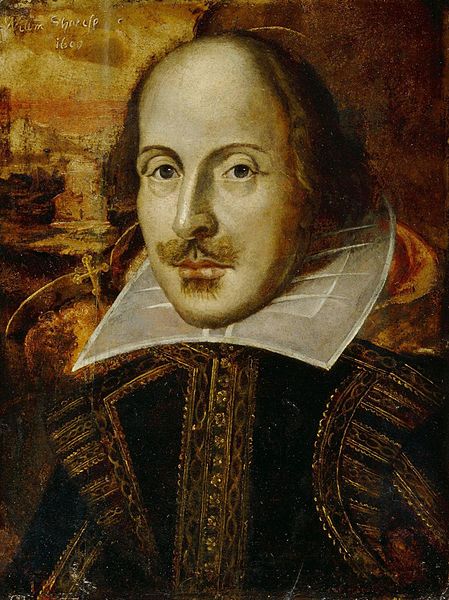
Portrait of William Shakespeare (1564-1616)
1500-1800 A.D.
T he English language changed considerably in the 16ᵗʰ century thanks to the talent of William Shakespeare (1564-1616) who coined almost 2,000 new words and many expressions that became part of the English language. Thanks to his works and his way of using the language, English evolved into Early Modern English and words such as fashionable, gravity, and laughable.
With the advent of the press, the English language became more and more prevalent and in 1604 the first English dictionary was published.
In the period between 1350 and the end of 1700, the so-called Great Vowel Shift Shift took place. This produced a great change in the pronunciation of vocal sounds, resulting in a clear difference between word pronunciation and word spelling. Before this change there was a greater correspondence between the sounds and the way they were written. English students will probably think that all the difficulties in pronouncing English words came from this change, which undoubtedly complicated language learning!
Later the language was enriched with new terms coming from the technological advances that took place during the Industrial Revolution.
T he English language changed considerably in the 16ᵗʰ century thanks to the talent of William Shakespeare (1564-1616) who coined almost 2,000 new words and many expressions that became part of the English language. Thanks to his works and his way of using the language, English evolved into Early Modern English and words such as fashionable, gravity, and laughable.
With the advent of the press, the English language became more and more prevalent and in 1604 the first English dictionary was published.
In the period between 1350 and the end of 1700, the so-called Great Vowel Shift Shift took place. This produced a great change in the pronunciation of vocal sounds, resulting in a clear difference between word pronunciation and word spelling. Before this change there was a greater correspondence between the sounds and the way they were written. English students will probably think that all the difficulties in pronouncing English words came from this change, which undoubtedly complicated language learning!
Later the language was enriched with new terms coming from the technological advances that took place during the Industrial Revolution.

1800-2000 A.D.
W ith the colonial expansion of the British Empire, the English language underwent further transformation, enriching itself with new words from languages spoken in the colonies in Africa, Asia, the Caribbean and India. For example, shampoo, pyjamas, aeroplane, radar. Late Modern English was also exported to various regions of the world and became the lingua franca that is spoken by over 1,5 billion people today.
Like all other languages, the English language is a living material that, when it is employed, is constantly evolving and being enriched with new words. Every year there are dozens of new words which are introduced into the language through linguistic borrowings or which are simply coined from scratch, such as the word selfie for example.
W ith the colonial expansion of the British Empire, the English language underwent further transformation, enriching itself with new words from languages spoken in the colonies in Africa, Asia, the Caribbean and India. For example, shampoo, pyjamas, aeroplane, radar. Late Modern English was also exported to various regions of the world and became the lingua franca that is spoken by over 1,5 billion people today.
Like all other languages, the English language is a living material that, when it is employed, is constantly evolving and being enriched with new words. Every year there are dozens of new words which are introduced into the language through linguistic borrowings or which are simply coined from scratch, such as the word selfie for example.
T
oday it is easy to see the result of many centuries of linguistic evolution. Just think, for example, of the many English words which exist in two different versions: one of Latin origin (legacy of the influence of Latin and French, e.g. the verb to remove) and one of Germanic origin (linguistic origin of the English language, e.g. the verb to take off which is synonymous with to remove). For those who speak a language of Latin origin such as Italian or French, the term of Latin origin is often more understandable as it is more ‘transparent’ even though in English it would probably be used in a more formal and less familiar context.
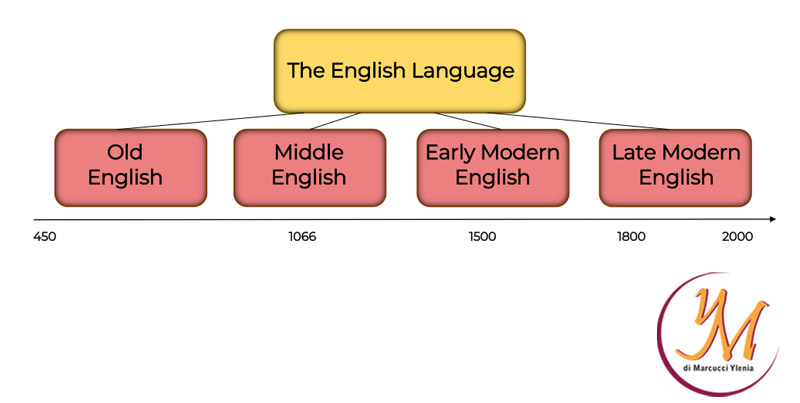
T
his article has allowed you to have an overview of the evolution of the English language and to understand why sometimes so many words seem to have similarities with other languages

